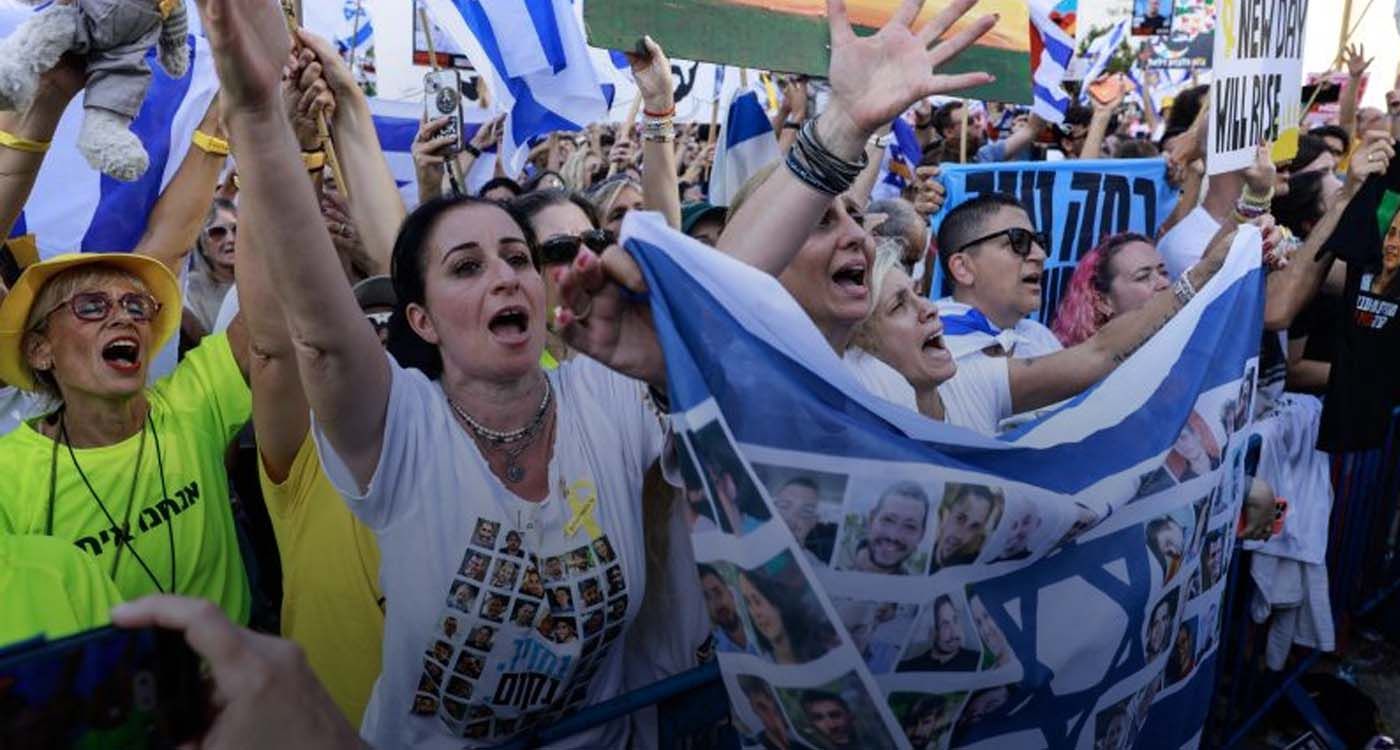- Home
- Middle East
- Israel Releases Murderers to Rescue Its Hostages

©Menahem Kahana / AFP
This Monday, Israel finds itself caught between celebration and unease. The joy of hostages returning home is tempered by a bitter reality: to secure the release of citizens still held in Gaza, the Israeli government is freeing nearly 2,000 Palestinian prisoners, including several convicted of violent crimes.
The deal, brokered under US President Donald Trump’s guidance with mediation from Qatar and Egypt, marks the first phase of a ceasefire between Israel and Hamas. However, behind the official smiles lies a familiar moral dilemma for Israelis: saving innocent lives at the cost of releasing convicted terrorists.
Murderers Among the Released
According to the Long War Journal, several of the prisoners being freed were convicted of exceptionally brutal crimes. Imad Qawasmeh, a Hamas operative, led the two suicide bombers responsible for the 2004 Beersheba double attack, which claimed 16 lives. He was serving 16 life sentences and now appears on the list of those released, with his destination kept secret.
Another high-profile figure is Mahmoud Issa, a former commander of the al-Qassam Brigade, who founded Hamas’ first special unit tasked with abducting Israeli soldiers for prisoner exchanges. In 1992, he orchestrated the kidnapping of Sergeant Nissim Toledano, who was executed after negotiations failed. Issa, sentenced to three life terms, is also being released.
The case of Baher Badr highlights the same grim reality. A Hamas operative, he was convicted of two attacks, including the 2003 Tzrifin bombing that killed nine Israeli soldiers. Israel had sentenced him to 11 life terms.
Fatah and Islamic Jihad Figures Among the Released
The release is not limited to Hamas operatives; members of Fatah and the Palestinian Islamic Jihad are also included. Ismail Hamdan, affiliated with Fatah, kidnapped and murdered an Israeli, Avi Boaz Braverman, near Bethlehem in 2002.
Bilal Ajarmeh, arrested in 2003, participated in 17 shootings targeting Israeli civilians and took part in the execution of two Palestinians suspected of collaboration.
Riyad al-Ammour, a senior Tanzim operative under Marwan Barghouti, orchestrated a series of attacks in Bethlehem during the Second Intifada that killed nine people. Sentenced to 11 life terms, he is also being released.
Among the Islamic Jihad prisoners, Amine Shuqeirat was serving two life sentences for the murder of two Israeli guards in Jerusalem. Mohammad Abu Tbeikh, the group’s operations chief in Jenin, took part in the 2002 battle there and oversaw explosives production.
Iyad Abu al-Roub, the Islamic Jihad military commander in Jenin, was convicted for multiple suicide bombings, including the 2005 Hadera market attack. All three will be expelled from Israel following their release.
History Repeating Itself?
Other cases underscore the gravity of Israel’s decision. Maher Abu Srour, a Hamas operative, assassinated Shin Bet agent Haim Nahmani in 1993. Mohammad Amran was involved in the Hebron attack that killed 12 people, while Ahmad Saada carried out the 2002 Bus Line 20 bombing in Jerusalem, which claimed 11 civilian lives.
Among the more recent names are Ali Hamed, who carried out a vehicle-ramming attack in Tel Aviv in 2022, and Hussam Matar, convicted for murdering a Palestinian accused of collaboration and for plotting the assassination of an Israeli minister.
Palestinian groups portray these men as “resistance fighters,” but Israel classifies them as terrorists convicted of murder, membership in an armed organization or planning attacks against civilians. Their release reopens deep wounds in a country that has paid a heavy price for terrorism over the past two decades.
The 2011 prisoner exchange for soldier Gilad Shalit had already returned several freed terrorists to the field, including former Hamas leader Yahya Sinwar, who was killed in October 2024. Fourteen years later, history seems to be repeating itself almost exactly.
Read more



Comments